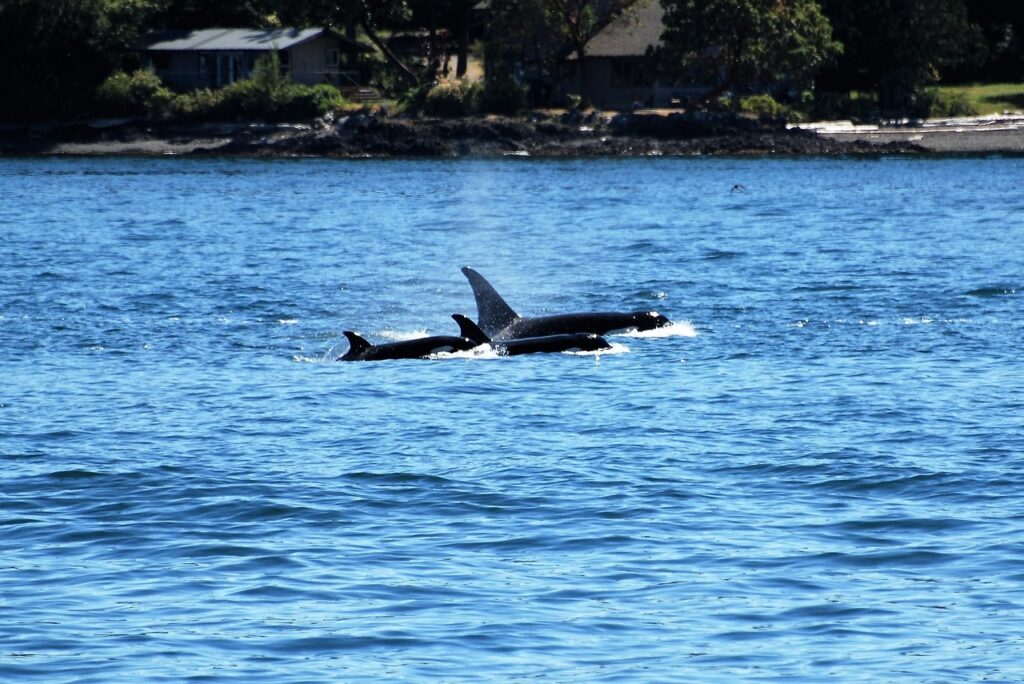Orca Encounters in the Strait of Gibraltar: Yacht Sinks After Being Rammed

An unknown number of orcas rammed a sailing yacht in Moroccan waters in the Strait of Gibraltar on Sunday morning, causing it to sink. Spain’s maritime rescue service reported that the 15-meter (49-foot) vessel, named Alboran Cognac, encountered the orcas at 9 a.m. local time while carrying two people. This attack is the latest in a series of similar incidents that have occurred in the region over the past four years.
The Incident
The two passengers onboard the Alboran Cognac suddenly felt the impact of the orcas striking the hull and rudder of their yacht. As water began seeping into the ship, they quickly alerted rescue services. A nearby oil tanker responded to the call, taking the passengers onboard and transporting them safely to Gibraltar.
Unfortunately, the damage inflicted by the orcas was severe, and the yacht was left adrift. Despite efforts to salvage the vessel, it eventually sank in the waters of the Strait of Gibraltar. The incident has raised concerns among the maritime community, as encounters between orcas and ships have become more frequent in recent years.
Recurring Orca Attacks
The sinking of the Alboran Cognac is not an isolated event, as orca rammings have become a recurring problem in the Gibraltar Strait and off the Atlantic coast of Portugal and northwestern Spain. The first reported attacks occurred in May 2020, and since then, the frequency of these incidents has increased significantly.
Experts believe that a subpopulation of about 15 individuals, known as “Gladis,” is responsible for these attacks. The research group GTOA, which tracks populations of the Iberian orca sub-species, has recorded nearly 700 interactions between orcas and ships in the region over the past four years.
The recurring nature of these attacks has prompted scientists and maritime authorities to investigate the possible causes behind this unusual behavior. Understanding the factors that contribute to these incidents is crucial for developing strategies to ensure the safety of both the orcas and the ships navigating through the affected areas.
Theories Behind the Behavior
Researchers are still working to unravel the mystery behind the orcas’ behavior, as the exact causes remain uncertain. Several leading theories have emerged, attempting to explain the reasons behind these attacks.
One theory suggests that the orcas’ actions could be a playful manifestation of their curiosity. As highly intelligent and social animals, orcas may be interacting with the ships as a form of exploration or entertainment. Another hypothesis proposes that the behavior could be a social fad, where the orcas are mimicking each other’s actions, leading to a spread of this behavior within the subpopulation.
Alternatively, some researchers believe that the orcas may be intentionally targeting the ships as they perceive them as competitors for their favorite prey, the local bluefin tuna. Orcas are apex predators and are known to exhibit highly coordinated hunting strategies. However, more research is needed to confirm any of these theories conclusively.
Balancing Safety and Conservation
The sinking of the Alboran Cognac yacht by orcas in the Strait of Gibraltar has highlighted the need for increased awareness and precautionary measures in the region. As these incidents continue to occur, it is essential to prioritize the safety of both the orcas and the ships navigating through the affected areas.
Maritime authorities, in collaboration with researchers, must work towards developing effective strategies to mitigate these encounters. This may involve implementing warning systems, establishing designated shipping lanes, or exploring technological solutions to deter orcas from approaching vessels.
At the same time, it is crucial to remember that orcas are an endangered species and are protected under international law. Any measures taken to address this issue must consider the conservation and well-being of these magnificent creatures. Balancing the safety of ships and the protection of orcas will require a collaborative effort from all stakeholders involved, including maritime authorities, researchers, and conservation organizations.